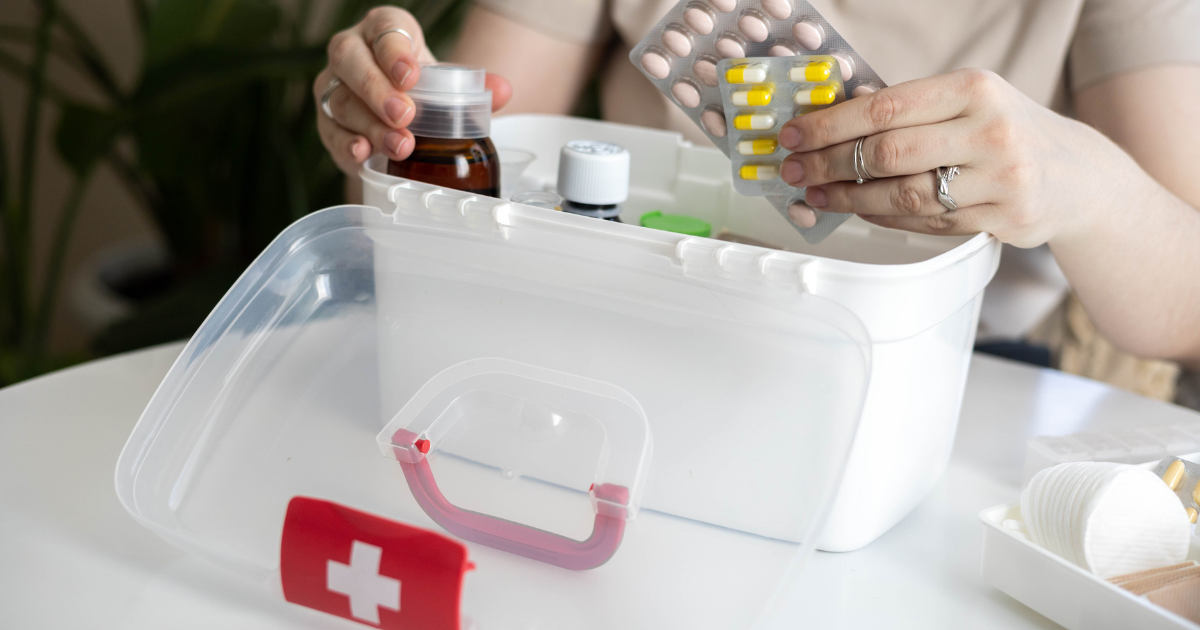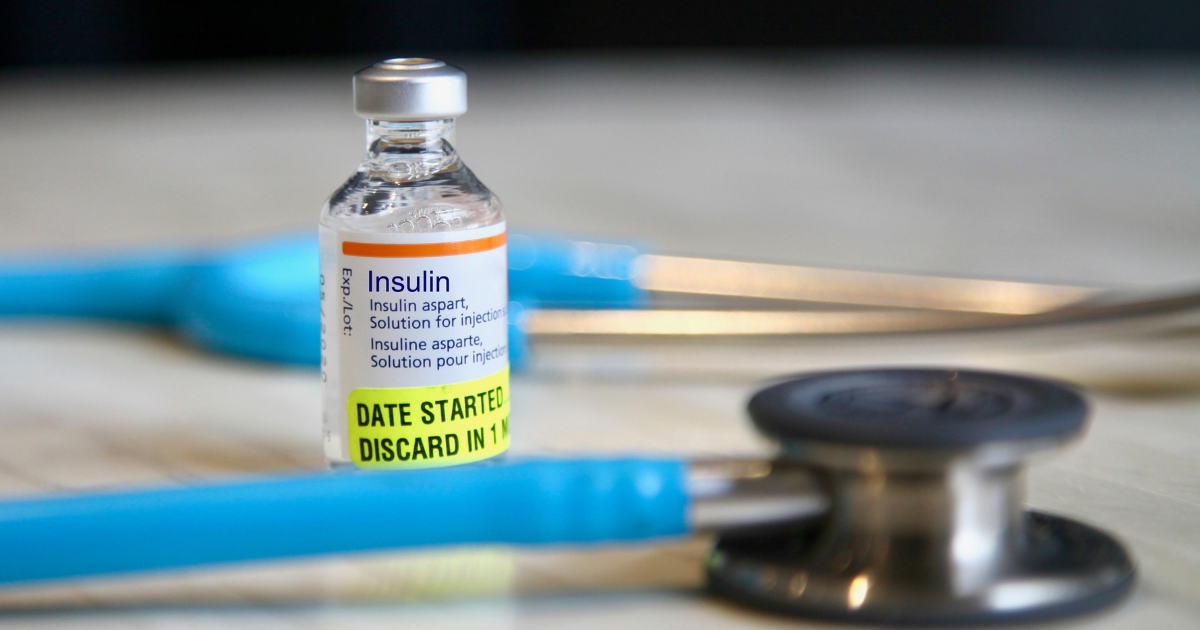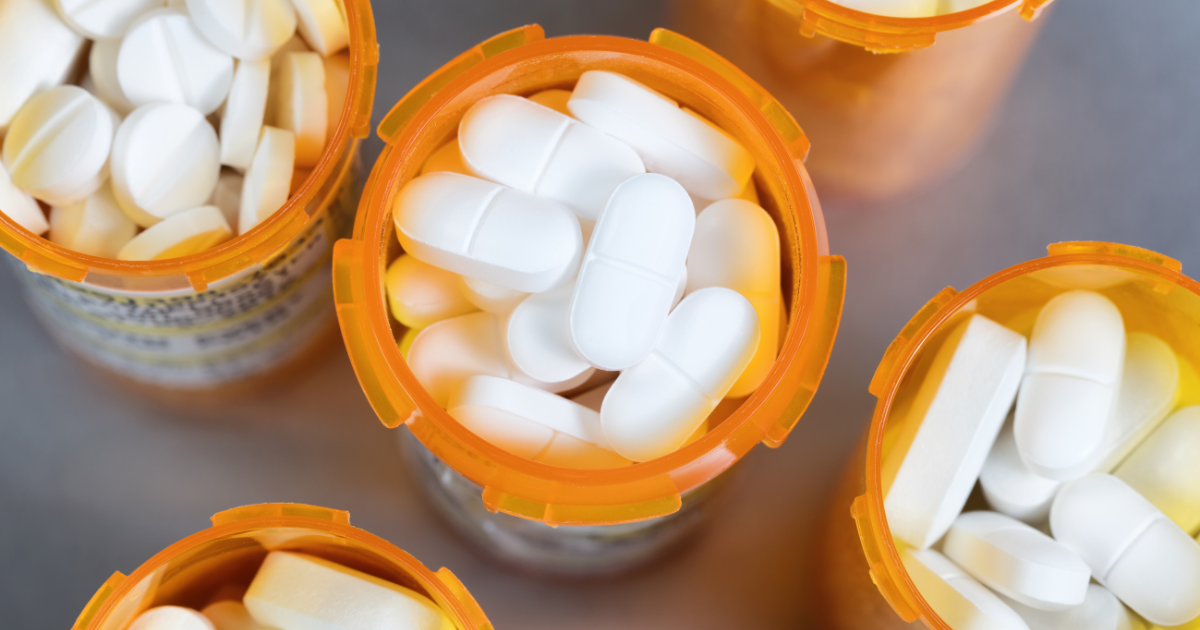
Emergencies can happen without warning. A sudden storm, wildfire, or power outage could make getting the medicines you rely on hard. Having an emergency supply at home helps you avoid dangerous gaps in your treatment. Planning ahead is especially important for seniors, people with chronic health conditions, and caregivers.
Storing Medications for Emergencies
Storing your medications correctly keeps them safe and ready when you need them. Here is how to set up a smart system that works even during an emergency.
1. Choose the Right Storage Environment
Medications are sensitive to heat, cold, moisture, and light. Storing them in the wrong place can cause them to break down or stop working properly.
- Temperature control: Try to keep medications in a space that stays between 68°F and 77°F. Avoid leaving them in a car, near windows, or next to heating vents where temperatures can swing wildly.
- Humidity and light: Bathrooms and kitchens are often too humid. Choose a cool, dry, dark place, like a bedroom closet or a special storage box away from direct sunlight.
If you must evacuate or the power goes out, protect your medications by moving them into insulated bags with cold packs (especially if they need refrigeration).
2. Use Proper Storage Containers
Keeping medications organized and protected makes a big difference during emergencies.
- Airtight, waterproof bags: These protect pills from moisture and spills. Hard plastic cases also work well if you need extra protection during travel.
- Pill organizers vs. original containers: Pill organizers can make it easier to manage daily doses, but you should also keep the original prescription containers for travel or proof of medication. The pharmacy label has important details like your name, dosage, and refill dates.
- Clear labeling: If you move medications into other containers, use clear, waterproof labels. Always include the medication name, strength, dosing instructions, and expiration date.
Keeping medications clearly labeled can help first responders, family members, or caregivers know exactly what you need if you are unable to speak for yourself.
3. Rotate and Track Expiration Dates
Prescription medications should be stored with expiration dates in mind. Over time, some medicines lose strength, and others (like certain antibiotics) can become harmful if taken after they expire.
- Set reminders: Use a calendar or smartphone alerts to check your emergency medications every few months. Replace anything that is expired or close to expiring.
- Rotate regularly: When you pick up a new refill, move the older stock into your daily supply and put the new stock into your emergency kit. This way, nothing goes to waste.
Staying on top of expiration dates means your emergency supply will always be fresh, safe, and ready to use.
4. Prepare a Medication Emergency Kit
A ready-to-go medication kit saves time and stress if you must leave home quickly. It also helps you stay organized during a longer power outage or shelter-in-place order.
Here is what to include:
- Extra supply of critical medications: Talk with your doctor or pharmacist about getting an additional 7–30 day supply to keep on hand.
- Copies of prescriptions: Paper copies or digital photos stored securely on your phone can help you refill medications if you are away from home.
- Doctor and pharmacy contact information: Include names, phone numbers, and addresses if you need to reach them quickly.
- List of medical conditions and allergies: Write down any important health information that emergency responders or backup caregivers might need.
Keeping everything together in a waterproof bag or small backpack turns your kit into a true "medication go-bag."

Considerations for Different Situations
Emergency medication storage is not one-size-fits-all. Some situations call for a little extra planning to make sure your medications stay safe and effective.
1. Storing Medications During Power Outages
If you have medications that need refrigeration, like insulin or certain liquid antibiotics, a power outage can be a serious problem. Here are some ways to keep them safe:
- Use portable coolers: Keep a small cooler and frozen gel packs ready. If the power goes out, place your medications inside the cooler with the cold packs. Try not to open the cooler often to keep the temperature steady.
- Consider a battery-powered mini-fridge: Some battery-operated or solar-powered mini-fridges are designed for medical use. These can be a good backup option if you live in an area with frequent outages.
- Know the safe temperature range: Most refrigerated medications should be kept between 36°F and 46°F. Use a thermometer to check if the cooler is staying cold enough.
- Have a plan: Talk with your doctor or pharmacist about what to do if your medication gets too warm. Some medicines can be used for a short time outside refrigeration, but it is important to know the limits.
Older adults often have unique medication needs that require extra care and planning. To learn more about how geriatric medicine differs from adult care, read Adult vs. Geriatric Medicine.
2. Traveling With Prescription Drugs
Whether flying, driving, or crossing state lines, taking your medications with you safely is important.
- Always carry medications in original containers: The prescription label shows that the medication belongs to you. It also lists important information if you need a refill or emergency care while traveling.
- Keep medications in your carry-on bag: If you are flying, never pack medications in checked luggage. Lost luggage means lost access to critical medications.
- Bring extra supplies: Carry more medication than you think you will need, just in case of delays. A few extra days' worth can make a big difference.
- Know the legal rules: Some states and countries have strict laws about specific medications, especially controlled substances like painkillers or medications for anxiety. Carry a copy of your prescription and a letter from your doctor explaining your medical needs if you are traveling with these types of drugs.
- Prepare for security checks: TSA allows you to bring medically necessary liquids and supplies, but you must declare them. Keep everything easy to access and clearly labeled to avoid delays.
How to Work With Your Doctor and Pharmacy
Good communication with your healthcare team is one of the best ways to prepare your medications for an emergency. Here is how to get started:
Request Extra Refills for Emergencies
Ask your doctor or pharmacist if you can get an extra 7–30 day supply of critical medications. Some doctors can write prescriptions with a few extra refills built in, which makes it easier to have a backup supply at home.
Be honest about why you are asking. Let them know you want to be prepared for emergencies. In many cases, providers are willing to help if they understand it is for safety, not stockpiling.
Ask About Safe Alternatives
Some medications are harder to replace during an emergency. Talk to your doctor about safe alternatives ahead of time.
- Are there different brands or generic versions that would work if your usual medication is unavailable?
- Are there longer-acting options that could be used temporarily?
- What should you do if you miss a dose because your medication was lost or damaged?
Careful medication management is especially important if you or a loved one manages multiple prescriptions. For more information, read Medication Management in Geriatric Care.
Check Insurance Policies for Early or Emergency Refills
Not all insurance plans allow you to refill medications early. Some limit how much you can get at one time.
Before an emergency happens, check your insurance policy or call your plan’s customer service line. Look for special rules about:
- Vacation overrides: Some plans allow early refills if you explain you will be traveling.
- Emergency declarations: If a state of emergency is declared, some insurance companies temporarily loosen refill rules.
- Mail-order options: Some plans offer 90-day supplies through mail order, which can help you build a small emergency stock more easily.
Knowing your options now can save you time, stress, and health risks later.

Legal and Safety Tips
When preparing an emergency medication supply, it is essential to stay within the law and keep your medications safe from harm or misuse.
Understand Regulations for Stockpiling Prescriptions
Laws about prescription medications can vary depending on the type of drug and where you live. Keeping a reasonable supply of prescribed medicines for personal use is generally legal. However, some drugs (especially substances like pain medications or medications for anxiety) are more tightly regulated.
Before you request extra refills, talk with your doctor and pharmacist. They can guide you on what is allowed and help you avoid accidentally breaking any rules. It is also a good idea to keep a copy of your prescriptions and any refill approvals with your emergency supply.
Keep Controlled Medications Secured and Documented
Controlled substances must be handled carefully, even during an emergency. Store them in a locked container or a secure area that is not easily accessible to others.
Keep a written list of:
- The name of each medication
- The prescribing doctor’s name and contact information
- The amount you have on hand
- The expiration dates
This kind of documentation helps if medications are ever lost, stolen, or need to be replaced. It also protects you legally if questions come up about your supply.
Safe Disposal of Expired or Unused Medications
Expired medications should not be kept with your emergency supplies. Over time, they can lose their strength or even become dangerous.
Here are safe ways to dispose of them:
- Take-back programs: Many pharmacies, hospitals, and police stations offer free medication take-back programs throughout the year.
- Disposal at home: If a take-back program is unavailable, mix medications with something unappealing (like coffee grounds or cat litter), seal them in a plastic bag, and throw them in the trash. Remove or black out personal information on prescription labels first.
- Special care for controlled substances: Some medications should never be thrown away at home. The FDA recommends flushing certain high-risk controlled substances if no other option is available. Check their guidelines or ask your pharmacist if you are unsure.
Building Your Emergency Prescription Drug Plan
Having an emergency medication plan is one of the most important steps you can take to protect your health. A few small steps now can bring real peace of mind later.
If you need help managing your prescriptions or creating an emergency plan that works for you or your loved one, Keystone Health is here to support you.
